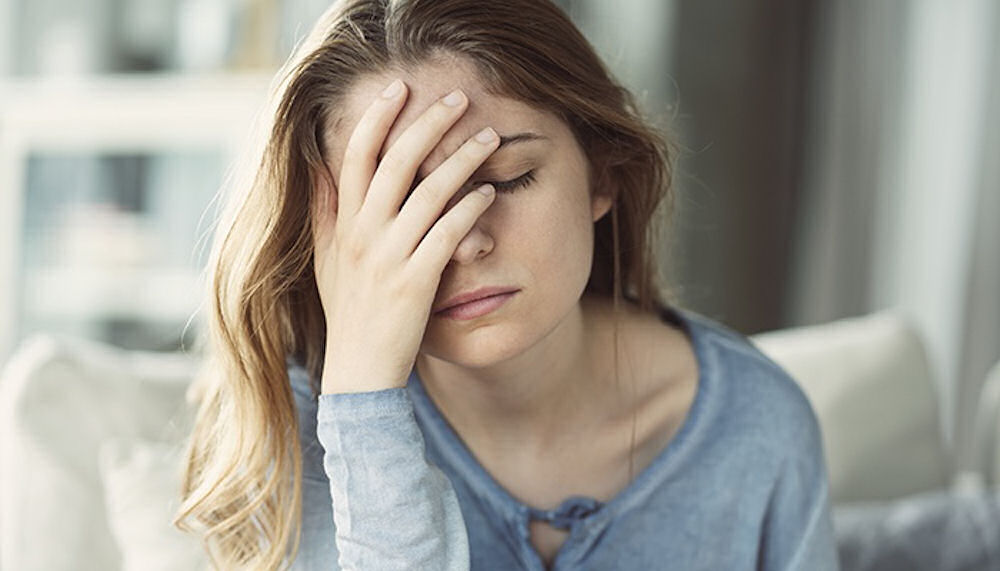Understanding Anxiety and How It Affects Daily Life
Anxiety is a normal human response to stress. But when anxiety becomes overwhelming, persistent, or out of proportion to the actual threat, it may indicate an anxiety disorder. Generalized anxiety disorder (GAD), panic disorder, social anxiety, and specific phobias are just a few examples that can severely affect a person’s well-being and daily functioning. Symptoms like constant worry, fatigue, muscle tension, irritability, sleep disturbances, and difficulty concentrating are common.
Anxiety can manifest differently in each person. For some, it might appear as racing thoughts, a tight chest, or even body shakes. For others, it may manifest as digestive issues, difficulty speaking, or extreme fatigue. It’s important to recognize that anxiety is not always visible and often hides behind smiles and responsibilities. Left untreated, it can disrupt careers, relationships, and even physical health over time.
For many, managing anxiety and its symptoms requires a multi-pronged approach that includes therapy, lifestyle changes, and (when appropriate) medication. With advances in mental health care, anxiety medications have become a reliable tool in reducing symptoms and improving quality of life. But how do these medications work, and what are the top 10 medications for anxiety available today?
How Do Anxiety Medications Work?
Anxiety medications work by targeting neurotransmitters in the brain, primarily serotonin, norepinephrine, dopamine, and gamma-aminobutyric acid (GABA). These chemicals regulate mood, sleep, energy, and emotional responses. When imbalances occur, they can lead to persistent anxiety.
Different classes of medications work in different ways:
- Selective serotonin reuptake inhibitors (SSRIs): Increase serotonin levels in the brain by preventing its reabsorption.
- Serotonin-norepinephrine reuptake inhibitors (SNRIs): Affect both serotonin and norepinephrine.
- Benzodiazepines: Enhance the effect of GABA, promoting calm and reducing hyperarousal.
- Beta-blockers: Reduce physical symptoms like rapid heart rate and trembling.
- Tricyclic antidepressants (TCAs) and monoamine oxidase inhibitors (MAOIs): Older classes that are sometimes used when newer medications are ineffective.
While effective, it can take several weeks for anxiety medications to fully take effect. During this adjustment period, individuals may experience heightened anxiety or other side effects before symptoms stabilize. Working closely with a provider during this time is essential to ensure the dosage is appropriate and any side effects are managed promptly.
The Top 10 Medications for Anxiety

Below is a list of the most commonly prescribed medications for anxiety, including some of the best anxiety medications, along with how they work and who might benefit from them.
This SSRI is commonly used to treat GAD, panic disorder, social anxiety disorder, and PTSD. It works by increasing serotonin levels in the brain, helping to stabilize mood and reduce anxiety.
Another SSRI, Lexapro, is known for its fast-acting results and mild side effect profile. It is often prescribed for generalized anxiety and major depressive disorder.
Paxil is effective for social anxiety disorder, GAD, and PTSD. However, it may cause more side effects compared to other SSRIs and can be difficult to discontinue.
While primarily used for depression, Prozac is also effective for panic disorder and obsessive-compulsive disorder. It has a long half-life, which makes withdrawal symptoms less intense.
An SNRI that treats GAD, panic disorder, and social anxiety. It works on both serotonin and norepinephrine, providing a broader chemical balance.
Also, an SNRI, Cymbalta, is approved for GAD and also treats chronic pain conditions. This makes it a good choice for individuals with anxiety and pain-related disorders.
Buspirone is a non-benzodiazepine anti-anxiety medication. It works by affecting serotonin and dopamine receptors. It’s often preferred for its low risk of dependency.
A benzodiazepine that’s fast-acting and highly effective for panic attacks and acute anxiety. It is typically prescribed short-term due to its addictive potential.
Similar to Klonopin, Ativan is used for short-term anxiety relief. It provides quick relief during episodes of intense anxiety or panic, but should be monitored for dependency.
A beta-blocker that doesn’t treat anxiety directly but helps manage physical symptoms like shaking and rapid heartbeat. Often used for performance anxiety or public speaking.
Potential Side Effects and Considerations
Each of these medications comes with potential side effects.
Common ones include:
- Weight gain or loss
- Sexual dysfunction
- Nausea or gastrointestinal discomfort
- Insomnia or fatigue
- Dizziness or lightheadedness
- Increased anxiety during the first few weeks
It’s also essential to consider drug interactions, underlying medical conditions, and the possibility of withdrawal or dependency. That’s why all anxiety medications should be prescribed and monitored by a qualified healthcare provider.
People with a history of substance use disorder may need special consideration when starting medications like benzodiazepines, due to their addictive potential. Providers at Crestview Recovery understand this dynamic and work closely with clients to find safe, sustainable solutions for long-term recovery.
Are There Alternatives to Medication for Anxiety?
Yes, medication is only one piece of the puzzle to treating anxiety. Many people manage anxiety successfully through:
- Cognitive Behavioral Therapy (CBT): Focuses on changing negative thought patterns.
- Exposure Therapy: Helps desensitize people to anxiety triggers.
- Dialectical Behavior Therapy (DBT): Especially helpful for people who experience extreme emotional reactions.
Therapy programs like the ones mentioned above help to provide a space to explore the root causes of anxiety, build emotional resilience, and develop healthier coping mechanisms. It’s especially effective when paired with medication or other supportive treatments.
- Regular exercise
- A nutritious, balanced diet
- Consistent sleep schedule
- Limiting caffeine and alcohol
- Meditation, breathwork, and yoga
Making even small changes to your routine can have a profound effect on how anxiety presents. Sleep hygiene, hydration, and movement all play vital roles in regulating mood and energy levels.
- Ashwagandha
- L-theanine
- Magnesium
- CBD (consult with a healthcare provider first)
Journaling, grounding exercises, and support groups can also reduce stress and promote healing. It’s often the combination of small, daily changes that creates lasting transformation over time.
How Crestview Recovery’s Outpatient Program Treats Anxiety

At Crestview Recovery, we understand that anxiety is more than just nervousness—it’s a condition that deserves compassionate, individualized care. As one of the trusted dual diagnosis treatment centers in Oregon, our outpatient mental health program is designed to provide both flexibility and structure for adults struggling with anxiety and co-occurring mental health or substance use disorders. For those who require more intensive support, our residential mental health treatment in Oregon offers a safe, structured environment where individuals can focus fully on recovery while receiving round-the-clock care and personalized therapies.
Our team of licensed clinicians creates a tailored treatment plan based on your unique symptoms, goals, and history. We offer:
- Psychiatric evaluations and medication management
- One-on-one counseling and cognitive behavioral therapy
- Group therapy sessions that focus on skill-building and emotional regulation
Dual diagnosis care for individuals with co-occurring substance use disorders
We incorporate evidence-based therapies alongside holistic practices, such as:
- Mindfulness-based stress reduction
- Guided meditation and breathing techniques
- Art and recreational therapy
- Nutrition support and physical wellness programs
We believe that mental health is closely tied to physical well-being. Our approach includes movement, nutrition, and spiritual wellness in addition to traditional therapy models.
Recovery from anxiety doesn’t end when treatment does. Our outpatient program includes aftercare planning and alumni support to ensure you have the resources to maintain progress. Whether you’re returning to work, school, or family life, we’ll help you navigate the transition with confidence.
Clients often describe our outpatient care as a lifeline, giving them space to learn, grow, and heal while still managing their everyday responsibilities. It’s therapy that fits real life.
When to Seek Help for Anxiety
You don’t have to wait until anxiety takes over your life to ask for help. If you’ve noticed any of the following, it might be time to reach out:
- Persistent worry that interferes with daily tasks
- Avoidance of social situations or responsibilities
- Sleep disruption due to anxious thoughts
- Physical symptoms like a racing heart, chest tightness, or dizziness
- Panic attacks or intense fear without a clear cause
Some people try to hide their anxiety out of fear of stigma or embarrassment. But mental health struggles are common and treatable, and at Crestview Recovery, you’ll be met with understanding, not judgment.
Take the Next Step with Crestview Recovery in Portland, Oregon
If you or a loved one is struggling with anxiety or the effects of trauma, you’re not alone, and you don’t have to manage it alone. At Crestview Recovery, our outpatient mental health and PTSD treatment programs provide expert care tailored to your needs. We offer a safe, supportive environment where healing can happen.
Call us today or visit our website to learn more about our anxiety treatment programs. Relief is possible, and it starts with one step forward.
































